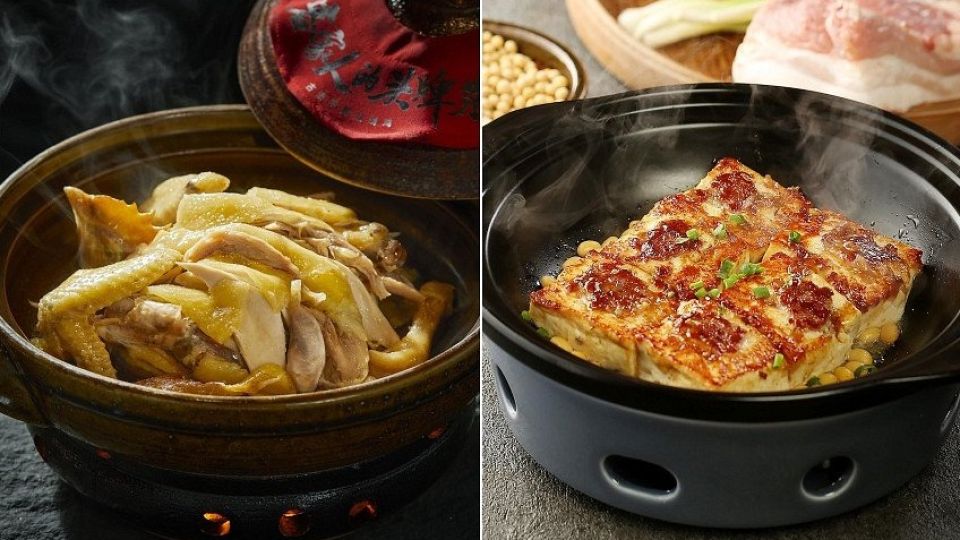December 11, 2024
SINGAPORE – Salt-baked chicken, stuffed tofu and traditional Hakka pork soup may become mainstays in Singapore’s food culture and help promote interest in Hakka culture here.
This is the hope of Char Yong (Dabu) Association president Ho Siong Hin, as Hakka restaurant chain Hakka Yu, which has more than 80 outlets in China, opens its first overseas restaurant on the third level of Jewel Changi Airport on Dec 28.
It is a joint venture between Hakka Yu founder Xu Ke Peng, 44, and Mr Fong Chi Chung, 56, founder and chairman of Putien Group.
Hakka Yu hopes to work with the clan association to enrich the cultural dimension of its dining experience, offering patrons a deeper understanding of Hakka culture.
Singapore’s Hakka community is the fourth-largest Chinese-speaking group, with more than 200,000 people.
Hakka cuisine is known for its natural flavours and preservation techniques, reflecting the agricultural lifestyle and migration history of the Hakka people. Hakka dishes often use simple, earthy ingredients with robust cooking methods such as braising, roasting and slow-cooking.
Hakka Yu, founded in 2013 in Guangzhou, was recognised as one of China’s Top 100 Restaurant Brands (2019-2020), named a Guangzhou Culinary Landmark (2021-2024), and earned a spot on Dianping’s prestigious Must-Eat List (2022 and 2024).
Mr Ho, 66, said: “There is less and less Hakka food in Singapore. As a result, Hakka cuisine is not as well known here.”
Speaking at the media preview of Hakka Yu on Dec 10 at his clan association in Geylang, Mr Ho added: “Seeing how Putien restaurants have promoted Hinghwa culture, I hope more people will appreciate our food and culture with Hakka Yu’s launch, and those of Hakka ancestry will join our clan association too.”
The clan association, which has about 6,000 members, was founded in 1858 to look after the welfare of Hakka immigrants from Dabu in China’s Guangdong province. Its new building will be completed in 2025. It will be two streets from the association’s current building in Geylang Lorong 22.
One of the facilities in the new building will be a kitchen, which Mr Ho said will be used for food research and networking. This is where the clan association can work with Hakka Yu to share knowledge about Hakka food and even fine-tune the dishes to suit local preferences.
On why he is promoting Hakka fare on top of his own Hinghwa cuisine offered by Putien, Mr Fong told The Straits Times that his early encounters with Hakka food were primarily through hawker dishes such as Hakka yong tau foo and thunder tea rice.
It was only when he went to eat at Plum Village – Singapore’s dedicated Hakka restaurant in Jalan Leban – that he experienced the distinct flavours of Hakka dishes such as rice wine chicken, Hakka fried spring roll and Hakka-style noodles. These are dishes rarely found in the local food and beverage scene, he said.
“Will Hakka Yu be a competitor of Putien? Not at all,” Mr Fong said. “Putien is known for its seafood, while Hakka Yu focuses on flavourful meat and wild vegetables from the countryside.”
Mr Xu said they may even work together on a Hakka food festival in the future, as they were inspired by the inaugural Hinghwa Food and Cultural Festival at Ngee Ann City Civic Plaza in February. That event was organised by the Singapore Puxian (Hinghwa) Network, a clan association helmed by Mr Fong.
When asked how many Hakka Yu outlets he plans to open in Singapore, Mr Xu said: “It depends on how much the local customers love our Hakka cuisine, so we’ll focus on this debut now.”


